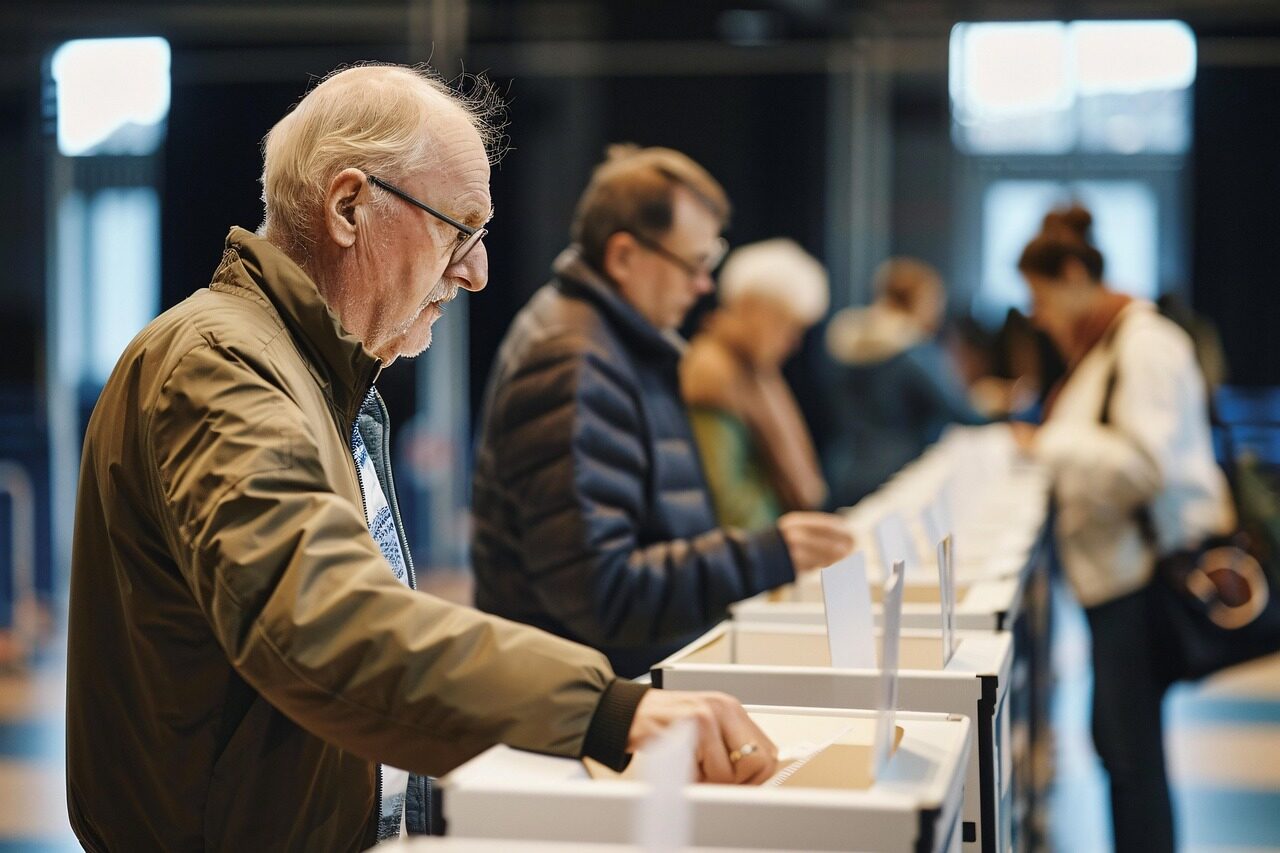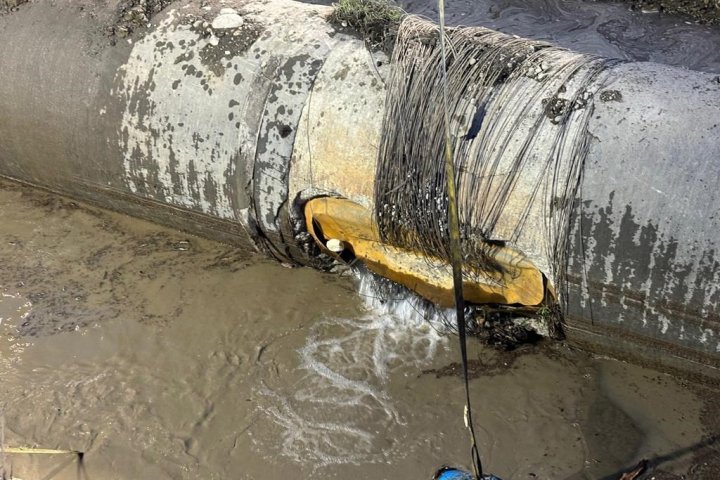Record advanced poll turnout shows a strong likelihood of a Conservative win.
Canada is gearing up for a pivotal moment in its political landscape with the upcoming federal election scheduled for April 28, 2025. The political climate is charged with anticipation, tension, and a growing sense of urgency. With advanced polls showing record turnout and parties scrambling to consolidate support, this election could mark a turning point for the nation—domestically and on the global stage.
Note sure which party is best for you? Try this handy tool to compare your beliefs with the major parties: https://votecompass.cbc.ca
Election Overview
The political landscape shifted dramatically in late 2024. Finance Minister Chrystia Freeland’s resignation over fiscal disagreements triggered a leadership crisis within the Liberal Party. Amid mounting pressure, Prime Minister Justin Trudeau stepped down, paving the way for Mark Carney—former Bank of Canada and Bank of England governor—to assume leadership. Carney was sworn in as Prime Minister on March 14, 2025, and promptly called a snap election to solidify his mandate.
This election is particularly notable as it marks the first use of a new 343-seat electoral map based on the 2021 Canadian census
Main Political Parties and Their Platforms
See all federal parties: https://www.elections.ca/content.aspx?section=pol&dir=par&document=index&lang=e
Liberal Party
Under the leadership of Mark Carney, the Liberal Party focuses on economic stability, green energy initiatives, and strengthening international relations. Their platform includes incentives for families to invest in clean energy, reinstating zero-emission vehicle subsidies, and allowing Quebec to veto any pipeline projects on its territory newsinteractives.cbc.ca. The Liberals are also committed to phasing out fossil fuels in government buildings by 2030 and developing a carbon border adjustment mechanism to tax imports from countries without comparable carbon pricing
Economic Vision: Carney promises to balance the federal budget within 4–5 years, emphasizing fiscal prudence.
Energy Strategy: Aims to fast-track energy projects, reduce permitting times, and invest in clean energy technologies to bolster energy sovereignty.
Foreign Policy: Positions himself as a bulwark against U.S. President Donald Trump’s aggressive trade policies, especially concerning Quebec’s interests.
Conservative Party
Led by Pierre Poilievre, the Conservative Party aims to tackle issues such as the cost of living, economic growth, and national security. They propose giving police more power to dismantle tent cities and redirecting Canada Revenue Agency resources to crack down on offshore tax havens globalnews.ca. Additionally, the Conservatives plan to support the auto industry by cutting federal sales tax from Canadian-made vehicles during ongoing trade tensions
Tax Policy: Proposes a 2.25 percentage point cut to the lowest income tax bracket, aiming to save the average Canadian about $900 annually.
Regulatory Approach: Advocates for expedited six-month approvals for energy projects and opposes federal carbon taxes, favoring provincial autonomy.
Economic Outlook: Focuses on reducing government spending and achieving a lower deficit than projected by the Liberals.
New Democratic Party (NDP)
The NDP, led by Jagmeet Singh, seeks to maintain its presence in the House of Commons with a focus on social justice, healthcare improvements, and affordable housing. The party’s challenge lies in retaining its current number of seats to maintain official party status, especially in the face of a shifting political landscape
Housing Initiatives: Pledges to build three million homes by 2030 and implement national rent control measures. CP24
Healthcare Expansion: Aims to ensure all Canadians have access to a family doctor by 2030 and expand public healthcare services.
Economic Measures: Proposes tax-free “Canada Victory Bonds” to counteract U.S. tariffs and protect Canadian industries from foreign corporate takeovers.
Bloc Québécois
Under Yves-François Blanchet, the Bloc Québécois emphasizes Quebec’s autonomy, environmental protection, and investment in public transit. Their platform includes opposing nuclear waste disposal projects and pipeline developments that threaten Quebec’s ecosystems
Quebec Advocacy: Positions the party as the sole defender of Quebec’s unique culture and interests, especially in the face of external threats.
Green Party
The Green Party focuses on sustainable development, combatting climate change, and protecting natural resources. They advocate for clean energy projects, stronger infrastructure to protect drinking water, and tackling plastic waste through national strategies
Environmental Focus: While not detailed in the provided sources, the Green Party traditionally emphasizes aggressive climate action and sustainable development.
Implications for Canada and the World
The outcome of this election holds significant implications not only for Canada but also for its role on the global stage. Policies related to trade, environmental agreements, and international relations will shape Canada’s interactions with major global players, including the United States. For instance, the stance both the Liberal and Conservative parties take on tariffs and trade with the U.S., especially in light of President Donald Trump’s economic threats, will impact Canada’s economy and its standing in international trade negotiations
High Advanced Poll Turnout and Projections
Advanced polls indicate a record turnout with 7.3 million Canadians casting their votes in advance en.wikipedia.org. This high engagement reflects the electorate’s keen interest in the issues at hand and the desire for a decisive mandate. It shows that people want change and are voting in record numbers. This looks good for a Conservative government
Current national polls show the Liberals holding a slight lead over the Conservatives, marking the first time in three years that the Liberals are leading
Seat projections suggest a tight race, with the possibility of both major parties securing a significant number of seats, potentially leading to a majority government
Recent polls indicate a close contest between the Liberals and Conservatives:
- Liberals: Leading with 42.6% support nationally. Reuters
- Conservatives: Trailing closely, with some polls showing them at 36–38%. Timmins Today
- NDP: Support has declined to around 9–12%, with some voters shifting allegiance to the Liberals. Timmins Today
- Bloc Québécois: Holding steady in Quebec, with about 24% support.
Critiques and Key Campaign Events
The Liberal Party faces critiques regarding Mark Carney’s political experience, as he has never been elected to public office in Canada www.bbc.com. Additionally, the Conservatives are scrutinized for their handling of trade relations and the response to tariffs imposed by the U.S. www.bbc.com. Key events in the campaign include leaders’ debates, where strategies and policies are fiercely debated, and endorsements from influential figures, which can sway undecided voters en.wikipedia.org.
Notable Campaign Moments
- Leader’s Debates: Scheduled dates and locations have been announced, providing a platform for party leaders to present their visions and challenge opponents en.wikipedia.org.
- Policy Announcements: Major parties have been updating their platforms, with the Liberals focusing on green initiatives and the Conservatives emphasizing economic reforms newsinteractives.cbc.cawww.ctvnews.ca.
- Public Reactions: Significant public engagement and reactions to policy proposals, particularly regarding climate change and economic strategies, are shaping voter opinions www.bbc.comnewsinteractives.cbc.ca.
Practical Insights for Voters
- Stay Informed: Keep up-to-date with the latest party platforms and policy proposals to make an informed decision.
- Vote Early: With a record number of advanced polls, consider voting early to ensure your voice is heard.
- Engage in Debates: Watch leaders’ debates and engage in discussions to better understand the implications of each party’s policies.
Final Thoughts: Why This Election Matters
The 2025 Canadian federal election is more than a political contest—it’s a referendum on the future Canadians want to build. Whether you’re concerned about inflation, environmental sustainability, or national unity, this is a pivotal moment to make your voice heard.
The upcoming Canadian federal election is set to be one of the most consequential in recent history. With high voter turnout, closely contested parties, and significant policy debates, the outcome will shape Canada’s future trajectory. Whether you’re supporting the Liberals’ green initiatives or the Conservatives’ economic reforms, staying informed and engaged is crucial.
Get informed. Get engaged. And most importantly—vote.
References from
https://en.wikipedia.org/wiki/2025_Canadian_federal_election https://www.elections.ca/home.aspx https://www.bbc.com/news/articles/cwydlr3reqpo https://newsinteractives.cbc.ca/elections/poll-tracker/canada https://www.bbc.com/news/articles/c20l2evgny6o https://newsinteractives.cbc.ca/features/2025/federal-party-platforms https://www.ctvnews.ca/federal-election-2025/party-platforms





Well, this is awkward. Not only do the Conservatives lose the election that they were “POISED” to win but their leader loses his own seat??? Now, he’s running to the Conservative HQ, Alberta, so he can run again in place of a party martyr. Why Edmonton, because we want to make sure no pesky opposition is around. So Albertans want to elect a spinless Trump wannabe who has been plagiarizing Trump’s sloguns, mannerism, and haplessness. Poilievre is emulating someone who is promising Canada’s destruction and “cease to exist” future? Really, Conservatives, when did you become anti-Canada if Canada elects a Liberal government? Any subservience or loyalty to Trump is tantamount to treason.